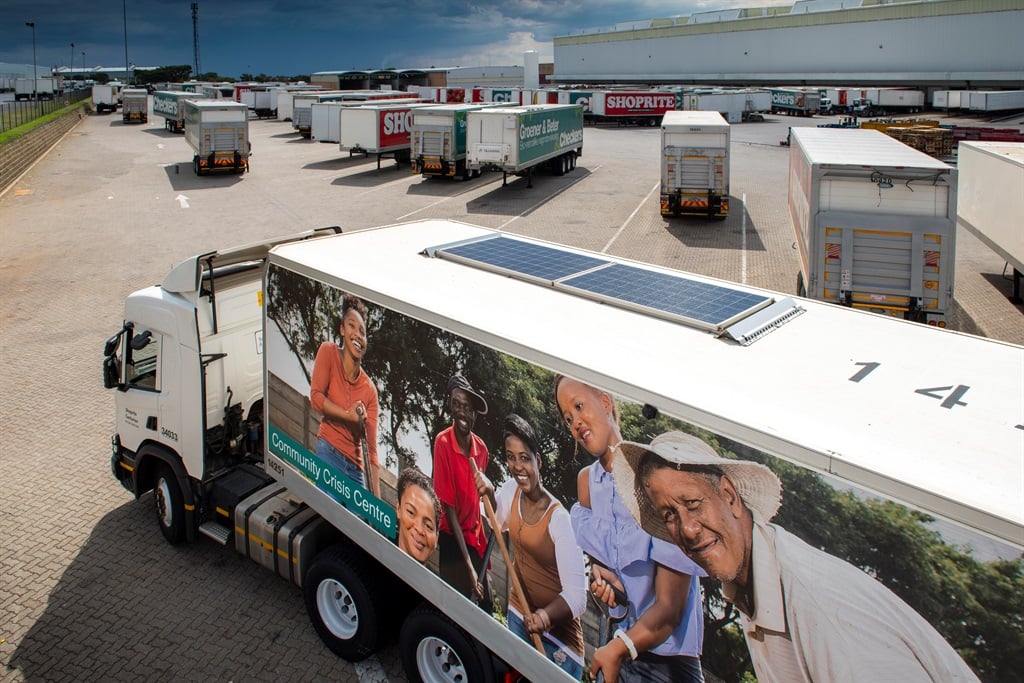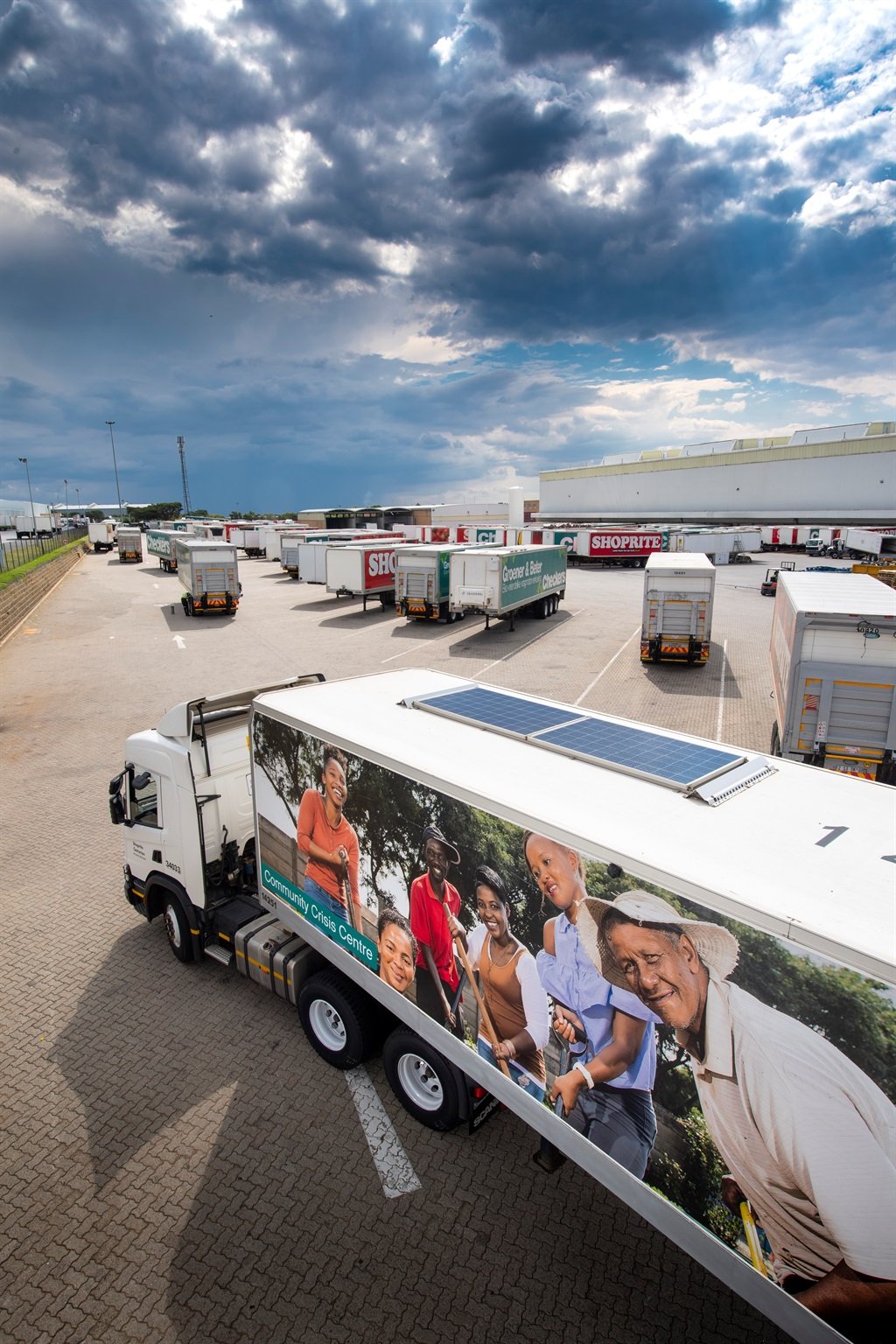
- South Africa's biggest retailer, Shoprite, began installing solar panels on top of its trailers in 2017.
- Since then, it's managed to move more than 1,000 of its trailers to solar power.
- The trailers' refrigeration systems, tail lifts, and surveillance units are now powered by the sun instead of diesel.
- The retailer has also bought more fuel-efficient trucks, saving around 10% on diesel.
Shoprite has fitted solar PV systems on more than 1,000 of its trailers, using the sun to power refrigeration, tail lifts, and surveillance equipment.
South Africa's biggest retailer is on a mission to power a quarter of its operations with renewable energy within the next five years.
Shoprite already has direct solar installations at more than 60 stores and distribution centres in Southern Africa and recently finalised sustainability-linked loans worth R3.5 billion for, among other things, the expansion of its renewable energy programme. Earlier this year, Shoprite announced that its Checkers store in Sitari Village Mall near Somerset West outside Cape Town had become the first to run entirely off renewable energy from wind and solar sources.
And it's not just Shoprite stores and distribution centres being kitted out with rooftop solar installations. Shoprite's fleet of trucks and trailers has also become more energy efficient.
Shoprite first began fitting solar panels to its trailers in 2017. Since then, it's installed these systems on 1,041 trailers out of a total of 1,360. With roughly 77% of its trailer fleet now drawing power from the sun, Shoprite estimates that it's saving 3.3 million kilograms of carbon emissions every year.
These solar panels are used to power refrigeration systems which would usually only stay cool while the diesel engines were running. They also power the tail lifts, used when moving goods to and from the trailer and surveillance equipment, including the cameras and GPS units.
"The trucks have quite an elaborate surveillance and security system so that we can monitor where they are [and] when the doors are open, there are cameras that monitor all of that," Shoprite Group Sustainability Manager Sanjeev Raghubir told Business Insider SA.
"The solar panels [also] allow us to switch off the truck so that you don't have to burn diesel to keep the refrigeration unit going, and, also, you can park the trailer off, you can decouple it from the truck, and you can leave it in a certain spot, and the trailer will still keep the produce in there cool."
And while the majority of Shoprite's trailer fleet is making use of solar power, the transition to fully electric trucks is still something that's a long way off, especially while South Africa's grid, which would be used to charge these vehicles, is powered predominantly by coal.
"With electric vehicles and electric trucks, with the bulk of our electricity from the national grid being fossil fuel-based, it really doesn't make much sense that you are then still using that electricity for your electric vehicles. So, it's not really making an impact in terms of reducing your carbon footprint," explained Raghubir.
Shoprite has, however, installed electric vehicle charging stations for customers at two of its supermarkets that are powered by rooftop solar installations.
Although electric trucks are unlikely to filter into Shoprite's fleet anytime soon, the retail giant is reducing its diesel burn by introducing newer, fuel-efficient vehicles.
In August, Shoprite acquired 100 Scania Euro V trucks, touted as the most fuel-efficient in Southern Africa. These trucks have fuel savings of around 10% and produce less CO2 and NOx emissions. Shoprite is looking to get another 140 of these trucks by the end of 2023, bringing the total of Scania Euro V vehicles in its fleet to 240, representing around a quarter of its current total fleet size.

